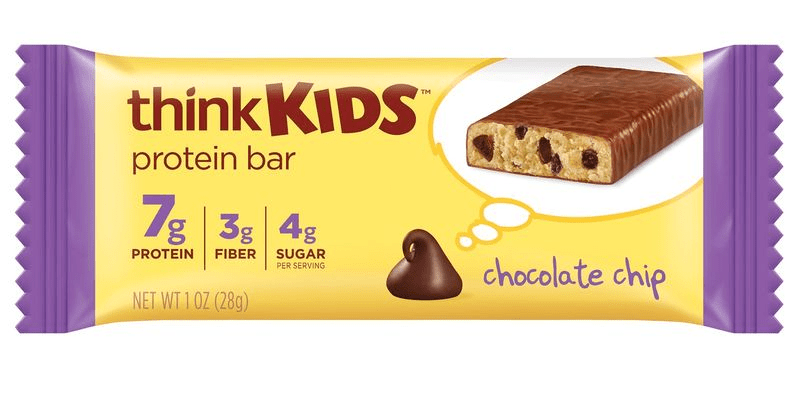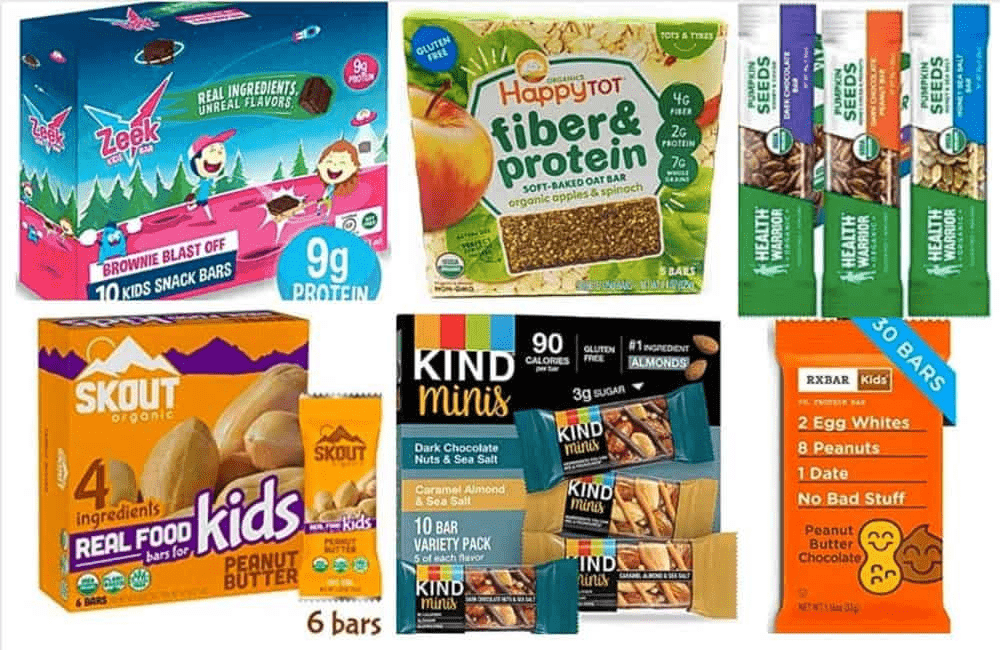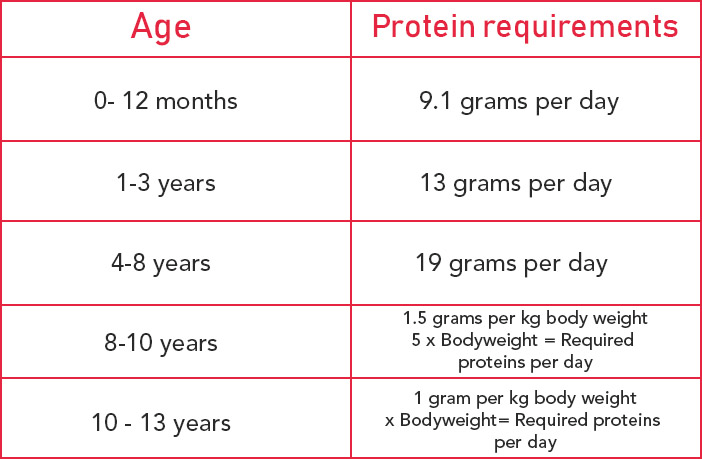
The main goal of your kids’ nutritional needs is to get the proper amount of protein so they may grow strong and healthy. While many of them will eat vegetables and fruits this is not always enough. You may also find that you have a few questions about the manufacturing of protein bars for kids. Now, just about all of the major companies will use the most popular whey protein isolate.1 This type of protein has been shown to have a higher absorption rate than other types. It also is easier to process and makes it much easier for manufacturers to ensure there is no case of stomach upsets or any sort of allergic reaction.2
Protein bars are a great snack for kids when they’re on the go. They contain protein, vitamins, and minerals to help give them energy. But what should parents know about these snacks? We’ve answered some of the most popular questions below.

Should Kids Consume Protein Bars?
While it is true that protein bars for kids are good for kids to snack on when they are bored or after having a snack, their benefits do not stop there. Instead, as we all know, kids are not just meant to eat healthy foods but also those which can promote their growth and development. And for this reason, protein bars for kids need to have some nutritional value in them. For instance, protein bars for kids need to have a content of amino acids to help the body develop properly and absorb nutrients. They also need vitamins and minerals to ensure that the body has an adequate supply of these elements.3
The ideal protein bars for kids must provide protein, carbohydrate, and fat, usually around two grams per serving, and be vitamin and mineral-fortified, both as part of their ingredients and in their production. Also, since protein bars for kids come in different flavors and colors, each child can choose the one that he likes. If they are low in calories and fat, then they will also be able to control their weight. The best protein bars for kids must not only give them the essential amino acids but must also promote weight loss through their ingredients.
Do Protein Bars Have Side Effects For Kids?
In order to answer the question “Do protein bars for kids have side effects?” We need to know more about these health products. This is because while their nutritional value is unquestionable, nobody can deny that they have a number of potential side effects that parents and children need to be aware of. These side effects can range from mild ones to potentially fatal ones and are listed below.
One of the most common side effects of protein bars for kids is that of stomach cramps.4 This is a fairly mild effect, as the body is naturally accustomed to having the protein in food in this manner. The body will respond to the overload of amino acids by releasing acids into the bloodstream in order to neutralize the excess acid. It is important for parents and children to not over-exert themselves though since this could lead to dehydration. Overdoing it may even cause harm to the liver and could result in a number of complications.5
Nitric oxide is another of the many protein bar side effects for kids that can be bothersome. This gas form of nitrogen helps the body to flush out waste and toxins, which is why this gas form of nitrogen is sometimes referred to as the “pumping effect” of protein within the body.6 While this is a normal part of the biological process, people who are not ingesting enough protein in their diets could still have issues with nitric oxide side effects for kids.
Another one of the side effects for kids is called water retention. This is not the same as fluid retention which is often experienced by adults but rather is the opposite of it. This side effect is actually considered to be normal for most kids who regularly consume protein-rich foods but some cases are considered to be normal because protein tends to make the cells within the body retain water. In other words, protein can help the cells hold onto more water which can ultimately lead to better overall health.
Protein supplements are not dangerous at all because they contain no harmful chemicals whatsoever. In fact, they are so easy to digest that you can find them easily without consuming extra time and effort chewing your food.7 Most protein supplement side effects for kids could really be reduced or avoided altogether if manufacturers would develop protein bars that incorporated the right kinds of ingredients such as high-quality whey protein, whole grain oats, and other nutrients that your kids need. By including these protein-building ingredients in the mix, you can be sure that your kids won’t experience any negative effects from consuming protein-based foods.
Are Protein Bars Considered Supplements?
When it comes to protein supplements for kids, there are a few things you should be aware of. First of all, if your child is having a hard time gaining weight (or just doesn’t seem to put on any weight), it may be a good idea to consider a protein supplement. This isn’t meant to be an excuse for not following a healthy diet, but rather an explanation as to why things aren’t going the way you would want them to. If nothing else, protein supplements can help provide extra protein that will help the muscle gainer gain more lean mass. There are a few different products that are available, so doing your research and choosing the right one for your child should be a relatively easy task.
They are food, which means that they are not to be consumed in large quantities nor are they intended to substitute food. But are protein bars considered supplements because they contain vitamins and other nutrients that your body needs? Yes, but they are not considered replacements for a balanced diet either.
Protein Requirements For a Child – How Much Can I Feed My Kid?
When it comes to protein requirements for a kid, most parents get confused about how much to feed your child. It is true that kids need as much protein as compared to adults. However, most people tend to feed them with foods that are high in protein content.8
While it is true that kids love to eat a variety of different food items, they also need their recommended protein intake. Kids need proper amounts of protein in order for their bodies to grow and repair themselves. Without enough protein, kids can be at risk for developing serious health problems, such as osteoporosis or kidney stones. They can also suffer from chronic diseases, such as diabetes, when the body’s ability to properly digest protein is hindered.9
One way to get your kids the recommended protein intake for children is to make sure they have a varied and healthy diet. This means your child should eat several small meals each day, rather than the traditional large breakfast. In addition to breakfast, you should feed them a lunchtime snack that contains at least one gram of protein per pound of body weight. Snacks should include foods like lean meats, whole-grain pasta, chicken, fish, and nuts. Avoid junk food and other food items that are high in fat.10
One of the easiest ways to get your kids the recommended protein intake for children is through their milk. Milk provides them with the essential nutrients and vitamins they need to grow, develop and repair themselves. While a glass of milk alone may not offer them enough protein, the amount of protein they get from milk is much higher than from a soy product or other vegetarian food items. Milk is also high in calcium, which is great for kids who are going through a growing period and will need extra amounts of this important mineral to support their bones and teeth. If your child drinks milk, be sure to check the label to see the protein content.
Image Credits
March 5, 2017
Trend Hunter / 2021
Picky Eater Blog / 2021
Baby Destination / 2021
1 “The 7 Best Types of Protein Powder.” https://www.healthline.com/nutrition/best-protein-powder Accessed 28 Jul. 2021.
2 “Whey Protein 101: The Ultimate Beginner’s Guide – Healthline.” https://www.healthline.com/nutrition/whey-protein-101 Accessed 28 Jul. 2021.
3 “The Best Protein Bars for Kids – Verywell Fit.” 18 Nov. 2020, https://www.verywellfit.com/best-protein-bars-for-kids-4145809 Accessed 28 Jul. 2021.
4 “What are the side effects of protein bars? – AskingLot.com.” 16 Jun. 2020, https://askinglot.com/what-are-the-side-effects-of-protein-bars Accessed 28 Jul. 2021.
5 “Are Protein Bars Good for You? – Healthline.” 16 Mar. 2020, https://www.healthline.com/nutrition/are-protein-bars-good-for-you Accessed 28 Jul. 2021.
6 “Nitric oxide supplements: Benefits, effectiveness, and risks.” https://www.medicalnewstoday.com/articles/326381 Accessed 28 Jul. 2021.
7 “Protein Powder for Kids: Is it Safe? – Healthline.” 27 Jan. 2020, https://www.healthline.com/health/childrens-health/protein-powder-for-kids Accessed 28 Jul. 2021.
8 “Protein for Kids: Kid-Friendly, Protein-Rich Foods – Verywell Family.” https://www.verywellfamily.com/protein-rich-foods-2633936 Accessed 28 Jul. 2021.
9 “Protein – How much is enough? Can you have too much? – FEED.” 5 May. 2018, https://feednutrition.com/2018/05/protein-how-much-is-enough-can-you-have-too-much/ Accessed 28 Jul. 2021.
10 “How Much Protein Do Kids Need? | Epicurious.” 2 Nov. 2017, https://www.epicurious.com/expert-advice/how-much-protein-do-kids-really-need-article Accessed 28 Jul. 2021.



